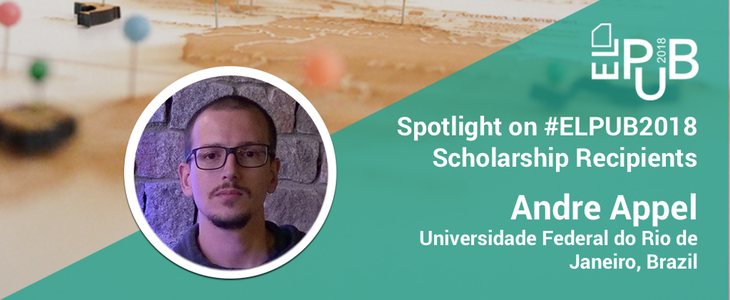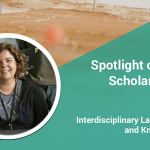
Over the next few weeks in the lead up to the ELPUB Conference, we will be featuring the #ELPUB2018 Travel Scholarship recipients on our blog. We would like to thank our Conference Partners – PLOS, OpenEdition, SPARC, FACETS Journal, UTSC’s Arts Culture and Media Department and Centre for Critical Development Studies, U of T Libraries, ACRL, Arcadia Fund, CARL, Creative Commons, eLife, KULA Journal and Ubiquity Press – for making it possible to include more voices in the conversation.
In this post, we share a Question and Answer interview with Andre Appel from Universidade Federal do Rio de Janeiro (UFRJ) / Instituto Brasileiro de Informação em Ciência e Tecnologia (IBICT), Brazil. Andre is a co-author of the paper, “Open Science practices adopted by Latin American & Caribbean open access journals” to be presented at the ELPUB Conference.
What are your research interests and how do they fit in with the theme of the ELPUB conference (Connecting the Knowledge Commons: From Projects to Sustainable Infrastructure)?
At the moment, I am a PhD candidate in the field of Information Science in Brazil. My research interests focus on the adoption of Open Science practices by Open Access (OA) Journals. Precisely, I am investigating how the concept of openness is being adopted or deployed by OA journals, either in the form of practices and processes or long term policies. I also expect to understand how technical, economical and political-institutional aspects unfold from the adoption of these practices. The ELPUB conference is going to be really important in this regard, as it is going to address many of the topics related to publishing practices along with critical aspects regarding OA publishing.
What are some of the specific challenges within your region/country with regards to infrastructures for open access?
Latin American countries, including Brazil, may be considered pioneers on the adoption of the OA publishing scheme. By deploying our own OA infrastructures, including platforms such as SciELO and indexing databases such as Redalyc and Latindex, also individual journals based on open source software, such as PKP Open Journal Systems, we are able to create a vast environment for dissemination and access of/to knowledge that is locally produced. Although one of our main concerns at the moment is to enhance the circulation of such knowledge globally, which is mainly constrained by the fact that the research that is produced in the so-called Global South is yet seen as of ‘poor quality’ because it is not as cited or not indexed as the research being produced in the North. Hence, not only OA publishing infrastructures demands improvements but also the research evaluation systems.
What do you hope are the outcomes of the ELPUB Conference?
I would like to thank ELPUB’s Organising Committee and also the Sponsors for giving me the opportunity to attend the Conference and also for improving its plurality. I have also had the opportunity to attend ELPUB 2017 and it felt great to be in touch with state of art of publishing, combined with the presence of a very critical audience and panelists, I think this is going to be even more pronounced in 2018.





